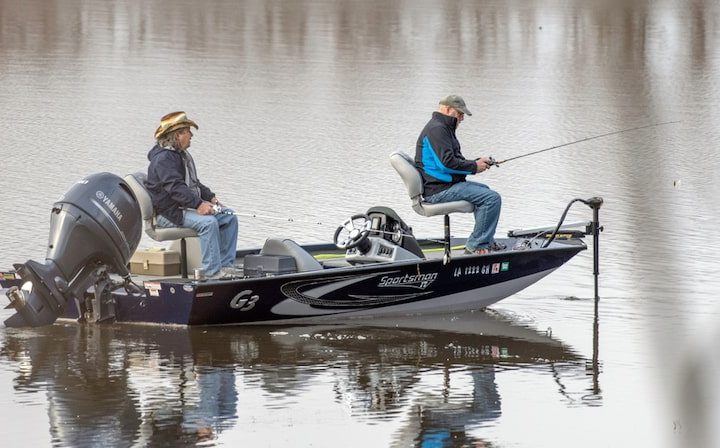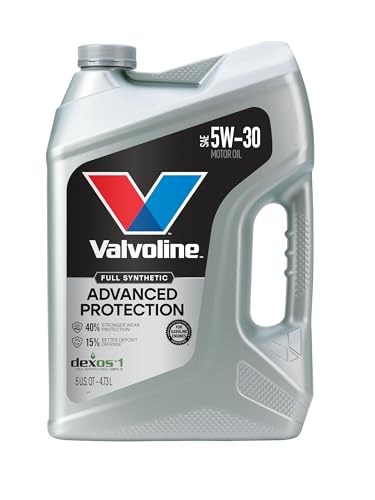Trolling motors are a life-saver for anglers fishing in different waters. However, the question is, can you use a freshwater trolling motor in saltwater?
Yes, you can. A freshwater trolling motor works just as well in saltwater. However, the benefits you see in freshwater might not be as long-lasting in saltwater.
Remember, most parts of the motor are metal. Metal tends to rust fast when exposed extensively to salty waters. So after some time, you notice your motor function decreasing. That’s why many anglers carry fresh water to rinse the trolling motor as soon as they complete the tasks.
Moreover, you should cover as many parts as you can with oil or grease. The coating forms an impermeable layer over the metal that saltwater can’t penetrate. In turn, you get more life and use out of the trolling motor.
Table of Contents
- What You Should Know Before Using a Freshwater Trolling Motor in Saltwater
- How to Protect your Freshwater Trolling Motor from Saltwater Corrosion
- Freshwater vs. Saltwater Trolling Motor
- Is It Possible to Use Saltwater Trolling Motor in Freshwater?
- The Importance of Rinsing a Freshwater Motor After Using it in Saltwater
- How Long Will a Freshwater Motor Last in Saltwater?
- Final Takeaway
What You Should Know Before Using a Freshwater Trolling Motor in Saltwater
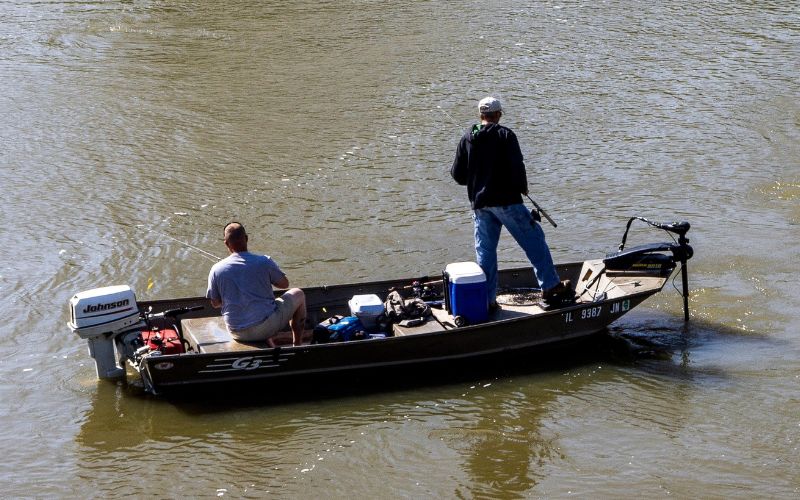
While it’s possible to use a freshwater trolling motor in saltwater, you need to note one crucial point. The warranty of the motor clearly states it’s only for freshwater.
Therefore, the minute you decide to use it in saltwater, it voids the warranty. A warranty is crucial when using specific devices since it gives you a form of safety net.
But, once you void it, you’re on your own. The manufacturer won’t accept any liability if the motor breaks during the stated duration.
So take some time to weigh the pros and cons of using a freshwater trolling motor in saltwater. If you’re ready to throw caution to the wind, then proceed to use it accordingly.
Besides, you end up happy when you bring in a great haul of trout at the end of the day! More so, there’s no need to panic about the freshwater trolling motor jamming after using it in saltwater.
All you need is to take the proper precautions, and you are good to go.
How to Protect your Freshwater Trolling Motor from Saltwater Corrosion
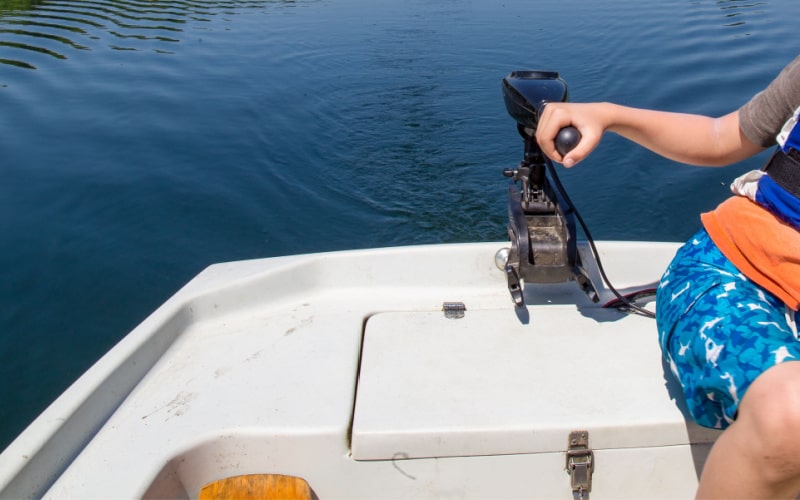
When manufacturers make freshwater trolling motors, they only intend them for use in freshwaters. However, as an angler, you can use the same device in saltwater. All you need is to protect the metallic parts of the motor from salt corrosion.
Saltwater trolling motors are pretty expensive when you compare them to freshwater motors. It’s because the manufacturers use non-corrosive metal to make these motors. Metals like stainless steel are pricey. That’s why anglers now prefer to use freshwater trolling motors, even in saltwater.
Usually, all you need is to protect the metal, and you can use it for some time. The steps below can help you coat your freshwater trolling motor before using it in saltwater.
1. Oil or Grease Coating
Water, even saltwater, can’t permeate oil or grease. That’s music to your ears since you can now use the motor in saltwater without much worry.
Do this, take Lucas Oil White Lithium Grease (below), and coat all the metal parts of the motor.
- Lucas Oil 10533 White Lithium Grease - 8 oz. Squeeze Tube
Last update on 2026-02-20 at 09:48 / Affiliate links / Images from Amazon Product Advertising API
You can also use oil such as Valvoline Motor Oil. Apply several layers to ensure no water comes into contact with the electric motor metal parts.
- Advanced protection against the four main causes of engine breakdown: wear friction heat and deposits
- Delivers 40% stronger wear protection than industry standards to reduce friction and improve fuel economy
Last update on 2026-02-20 at 12:36 / Affiliate links / Images from Amazon Product Advertising API
2. Corrosion Block Spray
Did you know there are corrosion block sprays that you can use to coat the metal on a freshwater trolling motor? Spray a generous amount covering all the metal, then proceed to use the motor in saltwater.
Remember to wear your gloves when using the oil, grease, or block sprays on the motor.
- Country Of Origin : China
- The Package Height Of The Product Is 23.88 Centimeters
Last update on 2026-02-18 at 10:15 / Affiliate links / Images from Amazon Product Advertising API
Freshwater vs. Saltwater Trolling Motor
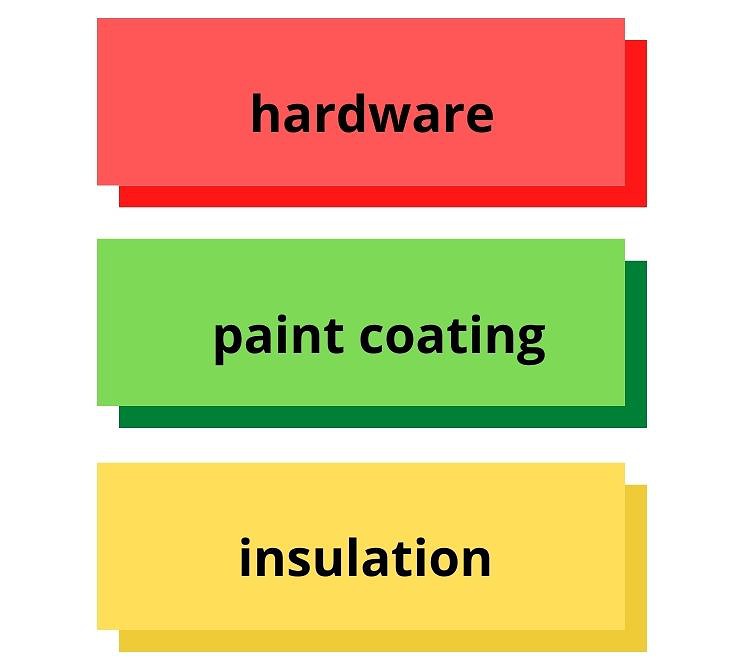
The freshwater and saltwater motors share similarities in terms of basic build and use. But, the two have differences worth noting.
First is the hardware. While the two motors have metal parts, the metal in use isn’t the same. Freshwater trolling motors use simple alloys to create a functioning device. On the other hand, saltwater trolling motors use corrosive-resistant metals like stainless steel.
Second, the freshwater trolling motors have less paint coating on them. Freshwater isn’t as corrosive as salt water. However, you’ll notice saltwater trolling motors have lots of corrosive-resistant paint in all metal parts.
Third, the insulation of the electrical parts differs in the two. Yes, the two have ample coverage of the electrical components, but it’s more intensive in saltwater trolling motors. That way, the corrosive water won’t interfere with the motor’s electrical system.
Is It Possible to Use Saltwater Trolling Motor in Freshwater?
Yes, it is possible to use a saltwater trolling motor in freshwater. The main difference between the two is in terms of corrosion protection. Saltwater motors are lined with protective layers on all metallic parts to guard against corrosion.
However, since freshwater is free of salt, no harm can come to the motor. Therefore, you can use your saltwater trolling motor in freshwater anytime. Moreover, you won’t need to rinse out the motor once you finish the task at hand.
The Importance of Rinsing a Freshwater Motor After Using it in Saltwater
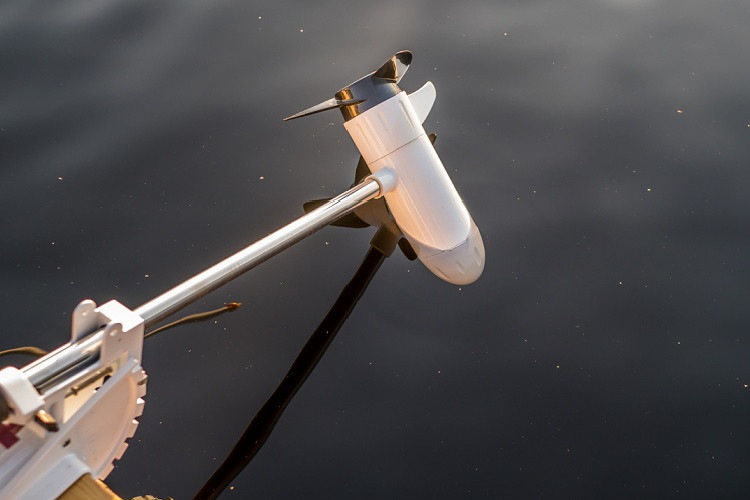
The life of your freshwater trolling motor depends on how you protect it. Once you decide to use it in salt water, it’s only a matter of time before it fails without proper protection.
One of the most basic protection steps you can take is to rinse out the motor. Use some fresh water to rinse all the salt from the trolling motor. Freshwater cleans out all salt deposits lodged in different parts of the water.
If you don’t rinse it out, corrosion sets in, especially if you didn’t take any of the protective measures mentioned above.
You can even bring a gallon of freshwater with you to rinse immediately when you’re done trolling. That way, you won’t forget once you get home.
How Long Will a Freshwater Motor Last in Saltwater?
The duration isn’t precise. However, it’s not as long as using it in freshwater. Truthfully, you can use a freshwater trolling motor in saltwater for up to 7 years. Eventually, corrosion sets in, but you end up getting more service from it with proper care.
Final Takeaway
It’s possible to use a freshwater trolling motor in saltwater. All you need is ample coating with protective substances like grease that keep the saltwater away from metallic parts. The main difference between freshwater motors and saltwater ones is the manufacturing.
Generally, saltwater motors use non-corrosive metal and materials to guard against the effects of saltwater. Nonetheless, with protective measures and regular rinsing, you can use a freshwater motor in saltwater for up to 7 years.

I created this site to help people – to help you – with your boat problems. Instead of helping one person at a time, I want this website to be the “one-stop-shop” for everyone’s boating concerns. Read more.

